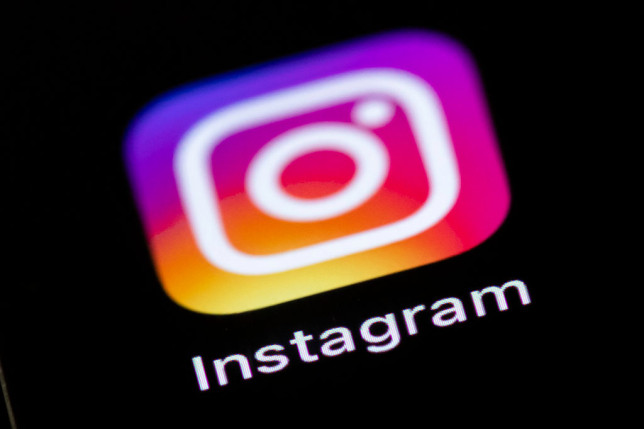
Instagram is the most intrusive app when it comes to your personal data, according to Apple’s new iOS 14 privacy ‘nutrition labels’.
In a report compiled by cloud storage company pCloud, Instagram was found to share 79% of personal data – including search history, location, contacts and financial info – collected in the app with third parties, the most of any popular social media app.
Facebook was second, with 57% of personal data collected shared with outsiders, followed by LinkedIn and Uber Eats, at 50%.
The report said that ‘by using the new Apple privacy labels featured in the App Store, we identified which apps share the most of your private data with third parties and which gather the most for their own benefits, to find the most invasive overall.
It adds that Instagram shares ‘everything from purchasing information, personal data, and browsing history.
No wonder there’s so much promoted content on your feed.’ But Instagram wasn’t particularly unique – the pCloud report also found that 80% of apps use personal data to market their own products in-app and outside it.
Again, Facebook and Instagram were the worst offenders for using personal data collected to promote an app’s own products, with 86% of personal data used. For overall data tracking on users, Facebook and Instagram also topped the list, at 55% and 62% respectively.
A Facebook spokesperson said: ‘We’ve built transparency into our products and controls that help people manage their privacy. ‘But the format of Apple’s labels, which this report relies heavily upon, is too broad and ignores how data is used in context. ‘They don’t allow us to offer people specific information about the types of data we collect and where we collect it, which unfortunately leads to confusion’.
In contrast, some of the safest apps were security-focused software like Signal, Skype, Zoom, and Telegram. However, some non-security-focused apps also fared well, like Just Eat, Grubhub and My McDonald’s, which were found to give away almost no user data at all.
Digital manager at pCloud, Ivan Dimitrov, said: ‘Any information you agree to be gathered by an app when signing up can be analysed for their benefit and even shared.
‘Everything from your browsing history, to your location, your banking details, your contact details, and your fitness levels can be valuable for apps to store, use, or sell on.’
He added: ‘With over 1 billion monthly active users it’s worrying that Instagram is a hub for sharing such a high amount of its unknowing users’ data.’
Apple’s new privacy nutrition labels highlight the ways apps track you under three different categories: Data used to track you, Data linked to you and Data not linked to you.
The addition of nutrition labels to the App Store started a long-running war between Apple and Facebook.
Facebook didn’t take the perceived provocation lying down. The world’s biggest social network and owner of WhatsApp and Instagram took out a full-page advert in various US newspapers to fight back.
It followed this up with a blog post explaining how millions of small businesses use Facebook’s data collection tools to successfully market their products.
In doing so, they are able to survive at a time when high streets and traditional forms of business are rapidly changing. ‘Apple’s new iOS 14 policy will have a harmful impact on many small businesses that are struggling to stay afloat and on the free internet that we all rely on more than ever,’ wrote Dan Levy, the VP of Ads and Business Products at Facebook.
‘We’ve heard from many of you, small businesses in particular, that you are concerned about how Apple’s changes will impact your ability to effectively reach customers and grow — let alone survive in a pandemic.’
The difference in approach between the two companies has been a long-running saga. Apple doesn’t require plentiful amounts of data on you to make money – it just needs to keep selling you shiny things.
Facebook, on the other hand, is one of the largest advertising companies in the world and absolutely depends on grabbing as much information about its users as possible.

